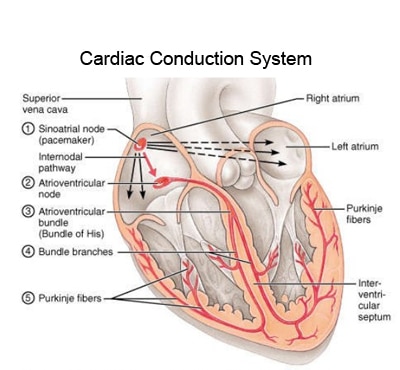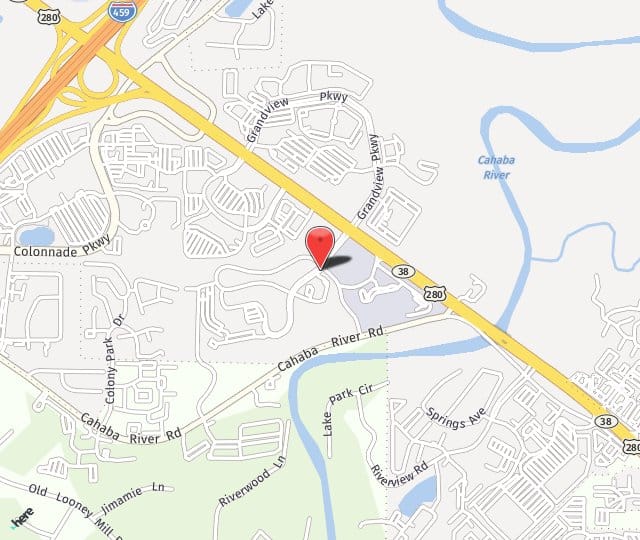What is an Arrhythmia?
An arrhythmia (ah-RITH-me-ah) is a problem with the rate or rhythm of the heartbeat. During an arrhythmia, the heart can beat too fast, too slow, or with an irregular rhythm. A heartbeat that is too fast is called tachycardia (TAK-ih-KAR-de-ah). A heartbeat that is too slow is called bradycardia (bray-de-KAR-de-ah).
Most arrhythmias are harmless, but some can be serious or even life-threatening. During an arrhythmia, the heart may not be able to pump enough blood to the body. Lack of blood flow can damage the brain, heart, and other organs. In the United States, more than 850,000 people are hospitalized for an arrhythmia each year.
Types of Arrhythmias
The types of arrhythmias that Dr. Macy Smith treats are:
- Atrial Fibrillation
- Atrial Flutter
- Atrial Tachycardia
- AV Node Reentry (AVNRT)
- Wolfe Parkinson White
- Premature Ventricular Contractions
- Ventricular Tachycardia
Atrial Fibrillation
Atrial Fibrillation is an irregular, rapid, or quivering heartbeat of the upper chambers of the heart called the atria. This is due to a malfunction in the heart’s electrical system.
Atrial Flutter
Atrial Flutter results from a single “short-circuit” in the right atrium that causes the atria to beat at about 300 beats per minute while the lower chamber of the heartbeat at a slower rate of 75 to 150 beats per minute.
Atrial Tachycardia
Atrial Tachycardia is a type of heart arrhythmia that causes your heart to beat 100 to 300 times each minute when a normal heart rate at rest is 60 to 80 beats each minute.
AV Node Reentry (AVNRT)
AV Node Reentry (AVNRT) is a type of abnormal heartbeat that is the most common type of supraventricular tachycardia (SVT) and accounts for about 60% of all SVTs. Patients with AVNRT have been born with an extra electrical connection in the heart. This extra connection and the entire reentrant circuit produce the arrhythmia.
Wolfe Parkinson White (WPW)
Wolfe Parkinson White (WPW) is an extra electrical pathway in the heart that creates an abnormal electrical connection between the atria and the ventricles.
Premature Ventricular Contractions
Premature Ventricular Contractions are extra and abnormal heartbeats that begin in one of your heart’s two lower pumping chambers (ventricles). These extra beats can disrupt your regular heart rhythm, sometimes causing you to feel a skipped beat in your chest.
Ventricular Tachycardia
Ventricular Tachycardia is a regular, faster-than-normal heart rate that begins in the heart’s lower chambers and has a rate that is in the range of 170 beats per minute or more.
What causes an Arrhythmia?
Many different factors may cause this abnormal heartbeat. These include:
- Coronary artery disease.
- Electrolyte imbalances in your blood (such as sodium or potassium).
- Changes in your heart muscle.
- Injury from a heart attack.
- Healing process after heart surgery.
- Irregular heart rhythms can also occur in “normal, healthy” hearts.

How to prevent an Arrhythmia
If you notice that your arrhythmia occurs more often with certain activities, you should avoid them.
- If you smoke, stop.
- Limit your intake of alcohol.
- Limit or stop using caffeine.
- Avoid stimulants used in cough and cold medications.
"Dr. Macy is an excellent doctor! He diagnosed my heart problem, and after a careful explanation of treatment options, he provided the most non-invasive treatment possible. I am healed and much stronger. I would highly recommend Dr. Macy to anyone needing treatment."
Treatment for Arrhythmias
The treatment for your arrhythmia will vary depending on the severity and underlying cause of it. Mild heart arrhythmias may not require treatment while slower heartbeats my require treatment with a pacemaker to help stimulate the heartbeat and help it beat at a steady rate. Some other treatments for heart arrhythmias include:
Dr. Macy Smith may suggest surgery, in some cases, to help treat arrhythmias that are caused by heart disease. He may also perform coronary artery bypass surgery to help improve blood supply to the heart. A valve repair surgery may also help to correct the arrhythmia as well.
Outlook for Someone with an Irregular Heartbeat
The outlook for a person who has an arrhythmia depends on the type and severity of it. Even serious arrhythmias often have successful treatment. Most people who have an irregular heartbeat are able to live normal, healthy lives.
Schedule a Consultation
If you suffer from an arrhythmia and would like to see if you are a candidate for treatment, contact Macy C. Smith, Jr., MD, FACC, FHRS. Call 205-971-7566 to schedule a consultation. Dr. Macy Smith serves Birmingham, AL and surrounding areas.

